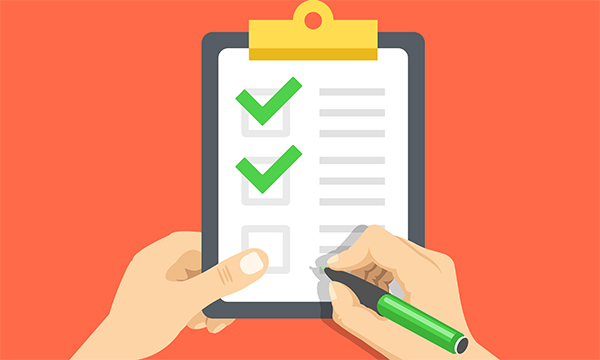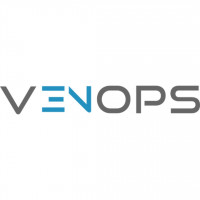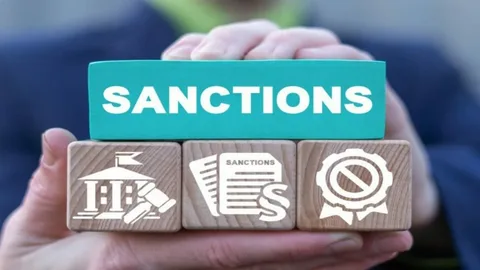What Should Be Included in a Vendor Compliance Checklist?

Strong 8k brings an ultra-HD IPTV experience to your living room and your pocket.
Vendor Compliance is the process of ensuring that all vendors (outside suppliers, contractors, etc) that a company has dealings with comply with the pre-established standards, policies, and regulations of a company. Vendor compliance is the simplest, most efficient means of ensuring vendors comply with safety, quality, and other legal requirements.
Vendor compliance is an important part of supply chain and procurement management. Whether a small business seeking materials or a large business managing a global network of suppliers, ensuring these vendors adhere to specific standards is vital for operations, compliance with regulations, and the integrity of the brand name. A Vendor Compliance Checklist is one of the easiest ways to keep all this consistent.
But what exactly should this checklist include? In this blog, we will explore the key elements every vendor compliance checklist should contain, helping businesses maintain transparency, accountability, and quality across all supplier interactions.
1. Company Information & Legal Documentation
The first part of any vendor compliance checklist must begin with thorough documentation and verification of the vendor’s business identity.
What to include:
- Company registration documents (e.g., certificate of incorporation)
- Tax Identification Number (TIN), GST, or other regional tax credentials
- Business licenses relevant to the industry
- Legal business address and contact details
- NDA or legal contracts signed
Ensuring the vendor is legally registered and compliant in their jurisdiction helps mitigate risks of fraud or unreliable partnerships.
2. Financial Stability and Creditworthiness
A financially unstable vendor can disrupt your supply chain at any time. It's essential to assess and document their creditworthiness.
Checklist points:
- Recent audited financial statements (last 2-3 years)
- Credit rating from a reliable financial institution
- Details of any ongoing litigation or bankruptcy history
- References from banks or other clients
Vetting their financial health allows your business to build long-term, sustainable relationships without surprise breakdowns.
3. Quality Control Standards
The quality of your product or service heavily depends on the materials or services you receive from your vendors. Thus, setting and checking for quality control procedures is non-negotiable.
What to include:
- Certification of standards (e.g., ISO 9001, GMP, HACCP, etc.)
- Product testing and inspection procedures
- Return and replacement policies
- Samples and specification documents
- Regular quality audit schedules
Vendors should be aligned with your company’s quality expectations from the outset.
4. Compliance with Regulatory & Industry Standards
Depending on your industry (healthcare, food, electronics, etc.), vendors must comply with regional and international regulations.
Key inclusions:
- Compliance certificates (FDA, CE, RoHS, REACH, etc.)
- Adherence to labor laws and environmental regulations
- Safety data sheets (SDS) for chemical products
- Evidence of anti-bribery, anti-corruption, and ethical labor policies
Regulatory non-compliance can lead to fines, bans, or even brand damage—hence this part of the checklist is crucial.
5. Supply Chain and Logistics Capabilities
Evaluate how effectively a vendor can deliver products or services on time, and how well they manage their supply chains.
Checklist items:
- Inventory management practices
- Lead times and delivery schedules
- Backup supply options in case of disruption
- Packaging and labeling requirements
- Logistics and warehousing capabilities
Late deliveries and logistical issues can disrupt your entire business flow. Ensure vendors have robust systems in place.
6. Data Security and Confidentiality
In today's digital world, data privacy and cybersecurity are more important than ever, especially if vendors handle sensitive information.
The vendor compliance checklist must include:
- Data protection policy (aligned with GDPR, HIPAA, etc.)
- Cybersecurity protocols and disaster recovery plans
- Signed confidentiality and non-disclosure agreements (NDAs)
- Employee access control to sensitive data
- Use of encrypted communication systems
Any data breach caused by a vendor can cost your company heavily in terms of both finances and trust.
7. Ethical and Sustainability Practices
Modern consumers and regulators are becoming increasingly aware of ethical sourcing and sustainable practices.
Include the following in your checklist:
- Proof of ethical labor practices (no child labor, fair wages)
- Environmental sustainability certifications (e.g., ISO 14001)
- Carbon footprint disclosure
- Responsible sourcing of raw materials
- Policies related to Diversity, Equity, and Inclusion (DEI)
Working with socially responsible vendors enhances your brand’s credibility and fulfills corporate social responsibility goals.
8. Insurance and Liability Coverage
To protect against unforeseen damages, accidents, or negligence, vendors must have adequate insurance coverage.
Checklist points:
- General liability insurance
- Product liability insurance
- Workers’ compensation insurance
- Proof of insurance with up-to-date renewal
- Indemnity clauses in agreements
Insurance acts as a safety net for both the vendor and your business.
9. Communication and Escalation Procedures
Clear communication channels and escalation paths should be established from the beginning to handle issues efficiently.
In your checklist, define:
- Primary point of contact (POC)
- Regular meeting schedules (weekly, monthly, quarterly)
- Preferred communication methods (email, portal, phone)
- Emergency contacts and escalation hierarchy
- SLA (Service Level Agreement) response times
Proactive communication avoids misunderstandings and enables smoother operations.
Conclusion
A thorough Vendor Compliance Checklist is not only a gesture—it's a forward-looking plan to safeguard your company, guarantee product or service quality, and establish firm, long-term vendor relationships. From documentation requirements and regulatory compliance to sound practices and performance standards, every element of the checklist is crucial to reducing risks and generating value.
Routine audits, transparent communication, and adapting the checklist as your business expands will keep you ahead in a competitive market. If you haven't already created a vendor compliance checklist, now is the time to begin—your business stability in the future relies on it.
Note: IndiBlogHub features both user-submitted and editorial content. We do not verify third-party contributions. Read our Disclaimer and Privacy Policyfor details.







